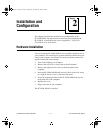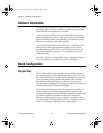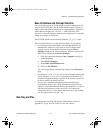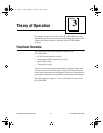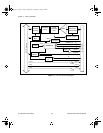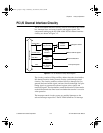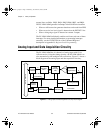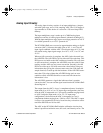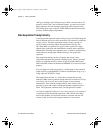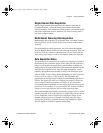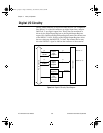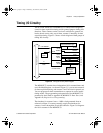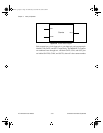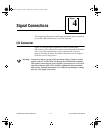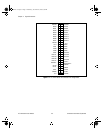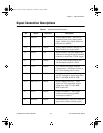
Chapter 3 Theory of Operation
PC-LPM-16/PnP User Manual 3-6
National Instruments Corporation
ADC goes through a self-calibration cycle under software control. To
properly use this ADC auto-calibration feature, you need an accurate
input stage that does not introduce significant offset and gain errors.
The analog input stage on the PC-LPM-16PnP maintains the required
accuracy without trimpot adjustments.
Data Acquisition Timing Circuitry
A data acquisition operation refers to the process of carefully timing the
interval between successive A/D conversions. This interval is called the
sample interval
. The data acquisition timing circuitry consists of
various clocks and timing signals that perform this timing. The
PC-LPM-16PnP can perform two types of data acquisition: single-
channel data acquisition and multichannel scanning data acquisition.
Multichannel scanning data acquisition uses a counter to automatically
switch between analog input channels during a data acquisition
operation.
Data acquisition timing consists of signals that initiate a data
acquisition operation and generate scanning clocks. Sources for these
signals are supplied mainly by timers on the PC-LPM-16PnP board.
One of the three counters of the onboard MSM82C53 is reserved for this
purpose.
You can initiate an A/D conversion by a falling edge on the counter 0
output (OUT0) of the MSM82C53 onboard counter/timer chip, or by a
rising edge on EXTCONV* input.
The sample-interval timer is a 16-bit down-counter that uses the
onboard 1 MHz clock to generate sample intervals from 20 to 65,535
µ
s
(see
Timing I/O Circuitry
later in this chapter for more timing
information). Each time the sample-interval timer reaches zero, it
generates a pulse and reloads with the programmed sample-interval
count. This operation continues until you reprogram the counter.
As stated in Appendix D,
Register-Level Programming
, only counter 0
is required for data acquisition operations. The software must keep
track of the number of conversions that have occurred and turn off
counter 0 after it receives the required number of conversions.
a.Book : g.chapter 3 Page 6 Wednesday, November 20, 1996 6:36 PM



